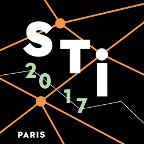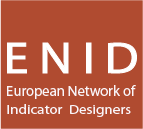Science, Technology and
Innovation indicators
STI 2017
Open indicators: innovation, participation and actor-based STI indicators
Paris 2017
6 – 8 September 2017
Location : ESIEE Paris, Champs-sur-Marne
The 2017 STI conference addresses the new issues and challenges that have appeared in Science, Technology and Innovation indicators. We have witnessed sharp changes in the recent years: new areas of knowledge are appearing, new types of objects need to be taken into account, new methodologies and visualisations have been proposed, a combination of different policy interests emerging from a large variety of social actors modify the demands addressed to indicators. Most of these challenges relate to profound changes in the way science, technology and innovation relate to society; indicators — necessarily— reflect these changes, taking into account the needs and strategies of the many different actors involved.
The conference will be the opportunity to showcase results from the intense work done in recent years on the way science, technology and innovation indicators are used in relating social actors to science and technology. The range of relations between science and society has been expanded into a dizzying array of forms that include a large variety of knowledge producing activities such as: open science and open innovation, collaborative projects that include social actors, crowdsourcing in large digital platforms, the inclusion of local and “indigenous” knowledge in development programmes, closer connections between users and producers of scientific and technological devices, a growing digitalisation, a shifting balance between productive and ‘access to market’ activities, new developments such as the sharing economy, crowdfunding, responsible innovation, technology ‘makers’ and ‘do-it-yourself’ movements… They drive to new governance issues, but also to new requirements for indicator designers and multiple experiments that the conference should discuss.
Participatory research programmes, combined with active civil society organizations, promote a need for debates and more democratic decision-making processes. Expertise can no longer be limited to top-down application of scientific knowledge and indicators should reflect and contribute to this democratic move. How can and do indicators get involved into this democratic move? How is this enlarged participation of actors into the definition and shaping of indicators changing the modalities of their construction?
Moreover, following last year’s central theme on peripheries, STI 2017 will interrogate broadly the evolving geography of ST&I, the impacts of the concentration of ‘new dominant’ sciences in large metropolitan areas, the expanding and diverse forms of international collaborations, all of which impose both methodological developments and new global strategies.
These objectives include new methodological developments, new methods in data processing, sharing, analysis and use, including the management of large data in a large variety of forms. Indicators, today, require not only larger databases, but also the mastering of shared technologies and collaborative technologies. Of interest are the possibilities of enlarging indicators through the use of open data.
The Conference will thus propose to engage in stimulating exchanges around these new developments concerning actor-based indicators, in a large variety of sectors from scientific and technological production, to innovations in service sectors such as tourism, leisure and culture, health, ageing, or food catering, to non-technological and organizational innovations. It will open the debates on the democratic uses of STI indicators and the specific challenges participation of a wider range of actors pose to the construction of sound, meaningful and robust indicators.
Program Committee
Philippe Laredo (LISIS, France) – Chair of the STI 2017 Conference
Rigas Arvanitis (IFRIS/ CEPED-IRD, France)
Aurélie Delemarle (LISIS / ENPC, France)
Gaston Heimeriks (Utrecht University, Netherlands)
Sybille Hinze (DZHW, Germany)
Patricia Laurens (LISIS/ESIEE, France)
Benedetto Lepori (Università della Svizzera italiana)
Jordi Molas-Gallart (INGENIO, CSIC-UPV, Spain)
Wolfgang Glänzel (ECOOM – KU Leuven, Belgium)
Johan Mouton (CREST, South AFrica)
Ed Noyons (CWTS, Leiden University, The Netherlands)
Ismael Rafols (INGENIO, CSIC-UPV, Spain)
Emanuela Reale (IRCRES-CNR, Italy)
Douglas Robinson (LISIS/ESIEE, France)
Julie Rust (IFRIS, France)
Ulf Sandström (Royal Institute of Technology, Sweden)
Antoine Schoen (LISIS, ESIEE, France)
Daniel Villavicencio (Univ. Aut. Metropolitana-Xochimilco, Mexico)
Lili Wang (UNU-MERIT)
Paul Wouters (CWTS, Leiden University, The Netherlands)
The Organizing committee
The Organizing committee assumes local arrangements at ESIEE and the University of Marne.
Rigas Arvanitis, Philippe Larédo, Julie Rust, Antoine Schoen, Lynda Silva and the support of Kevin Agblo, Valérie Duband and all the secretariat of IFRIS mobilized for the conference. Decisions concerning the venue and management issues were dealt by UPEM and ESIEE management teams.
Scientific committee
We wish to thank all members of the scientific committee that reviewed the proposals submitted to STI 2017.
Jonathan Adams (UK)
Isidro Aguillo (Spain)
Rigas Arvanitis (France)
Marc Barbier (France)
Rémi Barré (France)
Catherine Beaudry (Canada)
Susanne Buehrer (Germany)
Yannis Caloghirou (Greece)
Carolina Cañibano (Spain)
Jean-Philippe Cointet (France)
Massimo Colombo (Italy)
Rodrigo Costas (Netherlands)
Aurélie Delemarle (France)
Jakob Edler (UK)
Ernesto Fernandez-Polcuch (UNESCO)
Rainer Frietsch (Germany)
Wolfgang Glänzel (Belgium)
Gaston Heimeriks (Netherlands)
Sybille Hinze (Germany)
Patricia Laurens (France)
Philippe Laredo (France)
Vincent Larivière (Canada)
Benedetto Lepori (Switzerland)
Julia Melkers (USA)
Henk Moed (Netherlands)
Jordi Molas-Gallart (Spain)
Johann Mouton (South Africa)
Marianne Noël (France)
Ed Noyons (Netherlands)
Catherine Paradeise (France)
Ismael Rafols (Spain)
Emmanuela Reale (Italy)
John Rigby (UK)
Douglas Robinson (France)
Nicolas Robinson-Garcia (Spain)
Daniele Rotolo (UK)
Paloma Sánchez (Spain)
Ulf Sandström (Sweden)
Antoine Schoen (France)
Paula Stephan (USA)
Robert Tijssen (Netherlands)
Thed Van Leeuwen (Netherlands)
Daniel Villavicencio (Mexico)
Lili Wang (Netherlands)
Matthias Weber (Austria)
Inge van der Weijden (Netherlands)
Paul Wouters (Netherlands)
STI 2018 Conference will take place in Leiden.

